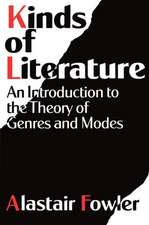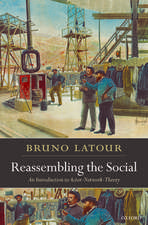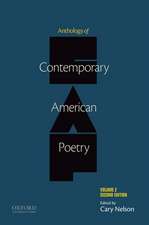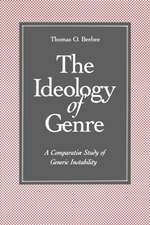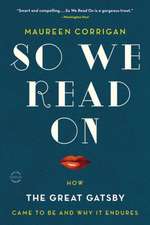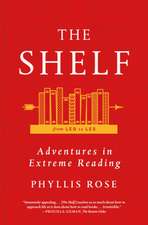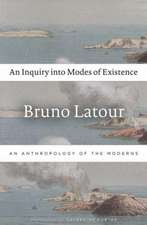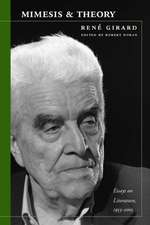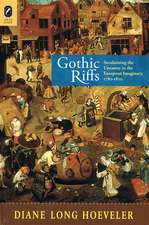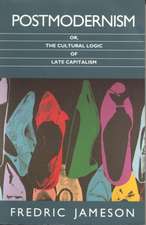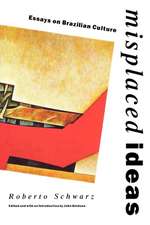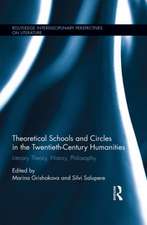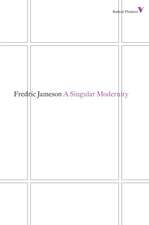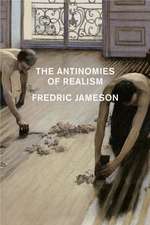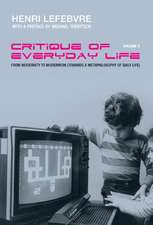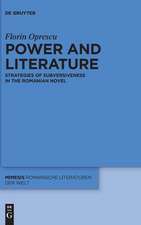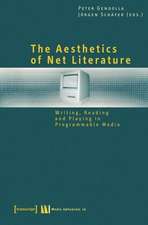The American Biographical Novel
Autor Professor Michael Lackeyen Limba Engleză Paperback – 6 apr 2016
| Toate formatele și edițiile | Preț | Express |
|---|---|---|
| Paperback (1) | 192.30 lei 6-8 săpt. | |
| Bloomsbury Publishing – 6 apr 2016 | 192.30 lei 6-8 săpt. | |
| Hardback (1) | 831.52 lei 6-8 săpt. | |
| Bloomsbury Publishing – 6 apr 2016 | 831.52 lei 6-8 săpt. |
Preț: 192.30 lei
Preț vechi: 223.15 lei
-14% Nou
Puncte Express: 288
Preț estimativ în valută:
36.80€ • 38.28$ • 30.80£
36.80€ • 38.28$ • 30.80£
Carte tipărită la comandă
Livrare economică 15-29 martie
Preluare comenzi: 021 569.72.76
Specificații
ISBN-13: 9781628926330
ISBN-10: 1628926333
Pagini: 288
Ilustrații: 4 b/w illustrations
Dimensiuni: 140 x 216 x 25 mm
Greutate: 0.39 kg
Editura: Bloomsbury Publishing
Colecția Bloomsbury Academic
Locul publicării:New York, United States
ISBN-10: 1628926333
Pagini: 288
Ilustrații: 4 b/w illustrations
Dimensiuni: 140 x 216 x 25 mm
Greutate: 0.39 kg
Editura: Bloomsbury Publishing
Colecția Bloomsbury Academic
Locul publicării:New York, United States
Caracteristici
Clarifies how the biographical novel can historicize and engage the political in a way that no other aesthetic form can
Notă biografică
Michael Lackey is Distinguished McKnight University Professor of English at the University of Minnesota, USA. He is the author of The Modernist God State: A Literary Study of the Nazis' Christian Reich (2012) and African American Atheists and Political Liberation: A Study of the Socio-Cultural Dynamics of Faith, which won the Choice Award for Outstanding Academic Title in 2008, and editor of The Haverford Discussions: A Black Integrationist Manifesto for Racial Justice (2013) and Truthful Fictions: Conversations with American Biographical Novelists (2014).
Cuprins
Chapter One: The Rise and Legitimization of the American Biographical NovelChapter Two: The Fictional Truth of the Biographical Novel: The Case of Ludwig WittgensteinChapter Three: Surrealism, Historical Representation, and the Biographical NovelChapter Four: Zora Neale Hurston and the Art of Political Critique in the Biblical Biographical Novel Chapter Five: Dual Temporal Truths in the Biographical novelChapter Six: The Biographical Novel: A Misappropriated Life or a Truthful Fiction?BibliographyIndex
Recenzii
Well worth reading for its careful scholarship and its insights into both a literary genre and a select group of novels that are often overlooked. ... Lackey's analysis is especially illuminating in two areas: the extent to which biographical novels reveal the complexities of German fascism and of America's racial history. ... I attribute the soundness of these interpretations to Lackey's remarkable command of scholarship: not just of literary criticism, but of German intellectual history and the many cultural debates about race in America. More effectively than any recent scholar I can remember, Lackey shows how audiences were seduced by Hitler's Mein Kampf (a fact which always amazes anyone who has read the book in the aftermath of World War II). ... The American Biographical Novel deserves praise for its close, scholarly, and thoughtful readings of its key texts.
The American Biographical Novel is a provocative and valuable book. It is written with a forcefulness and directness that stimulates thought. In its aim of making readers return to biographical fiction with new questions in mind, and with a new sense of the intrinsic interest of this body of writing, it succeeds without a doubt.
This is an important book on the rise of the biographical novel from Georg Lukács's disparagement of the genre in the 1930s to its current prominence as a versatile form capable of depicting the past in the present and critiquing the political. Michael Lackey shows how it has flourished in recent decades in tandem with changing assumptions about history and narrative. Linking the genre's development with the cataclysms of twentieth-century history, he illustrates its significance as a way of reflecting upon subjects significant to us all.
This is a valuable contribution to the analysis of the shift from the historical novel to the biographical novel. It makes us see more clearly how postmodernism discovered the contamination of history and fiction. Literature here complements history, proffering a nuanced view of the diversity of the world we live in.
As a sub-genre of American literature, the biographical novel boasts a lengthy historical trajectory and also enjoys renewed interest because of writers such as Jay Parini, Thomas Pynchon, Charles Johnson, Russell Banks, Michael Cunningham, and Joyce Carol Oates-all of whom have chosen it for their ruminations on US culture. Lackey (Univ. of Minnesota, Morris) offers a compelling overview of the biographical novel, defining it as distinct from the historical novel and exploring its rich aesthetic and political promise. He traces the genre's history in terms of both literary production and critical considerations, then offers readings of several germinal texts to assert their dual focus on depicting the past and present simultaneously and on critiquing contemporary political issues. Lackey draws on such disparate examples as Zora Neale Hurston's Moses, Man of the Mountain (1939), Jay Parini's Benjamin's Crossing (1997), Bruce Duffy's The World as I Found It (1987), and David Ebershoff's The Danish Girl (2000) to articulate an ethical vision of the truth contract biographical fiction maintains and to support its democratic promise. Used in conjunction with Truthful Fictions: Conversations with American Biographical Novelists, which Lackey edited, the present volume provides a sound beginning for discussions of this important genre. Summing Up: Highly recommended. Upper-division undergraduates and above.
Mentioned.
The American Biographical Novel is a provocative and valuable book. It is written with a forcefulness and directness that stimulates thought. In its aim of making readers return to biographical fiction with new questions in mind, and with a new sense of the intrinsic interest of this body of writing, it succeeds without a doubt.
This is an important book on the rise of the biographical novel from Georg Lukács's disparagement of the genre in the 1930s to its current prominence as a versatile form capable of depicting the past in the present and critiquing the political. Michael Lackey shows how it has flourished in recent decades in tandem with changing assumptions about history and narrative. Linking the genre's development with the cataclysms of twentieth-century history, he illustrates its significance as a way of reflecting upon subjects significant to us all.
This is a valuable contribution to the analysis of the shift from the historical novel to the biographical novel. It makes us see more clearly how postmodernism discovered the contamination of history and fiction. Literature here complements history, proffering a nuanced view of the diversity of the world we live in.
As a sub-genre of American literature, the biographical novel boasts a lengthy historical trajectory and also enjoys renewed interest because of writers such as Jay Parini, Thomas Pynchon, Charles Johnson, Russell Banks, Michael Cunningham, and Joyce Carol Oates-all of whom have chosen it for their ruminations on US culture. Lackey (Univ. of Minnesota, Morris) offers a compelling overview of the biographical novel, defining it as distinct from the historical novel and exploring its rich aesthetic and political promise. He traces the genre's history in terms of both literary production and critical considerations, then offers readings of several germinal texts to assert their dual focus on depicting the past and present simultaneously and on critiquing contemporary political issues. Lackey draws on such disparate examples as Zora Neale Hurston's Moses, Man of the Mountain (1939), Jay Parini's Benjamin's Crossing (1997), Bruce Duffy's The World as I Found It (1987), and David Ebershoff's The Danish Girl (2000) to articulate an ethical vision of the truth contract biographical fiction maintains and to support its democratic promise. Used in conjunction with Truthful Fictions: Conversations with American Biographical Novelists, which Lackey edited, the present volume provides a sound beginning for discussions of this important genre. Summing Up: Highly recommended. Upper-division undergraduates and above.
Mentioned.


